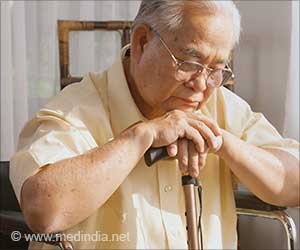Lung cancer is increasing in nonsmokers, especially women.

‘Did You Know?
lung cancer is rising among nonsmoking women #lungcancerawareness #nonsmokerrisk #womenhealth #medindia’





lung cancer is rising among nonsmoking women #lungcancerawareness #nonsmokerrisk #womenhealth #medindia’
Advertisement
Environmental & Chemical Risks of lung cancer
In addition to cigarette smoke, a number of dangerous chemicals can raise a nonsmoking woman's risk of developing lung cancer. Without being noticed right away, these harmful substances could be hiding in commonplace settings like homes and workplaces. Lung cancer risk has been associated with exposure to pollutants such as asbestos, diesel exhaust, and radon. A naturally occurring gas called radon can build up in buildings, particularly in areas with inadequate ventilation. Diesel exhaust, which is frequently found in cities, emits tiny particles that have the ability to enter the lungs deeply. In older buildings, asbestos, which has been used in construction for a long time, still poses a health risk. Another important factor is air pollution, which includes vehicle fumes and industrial emissions. Long-term exposure to these contaminants can harm lung cells , raising the risk of cancer (1✔ ✔Trusted SourceLung Cancer in Non-Smokers: Clinicopathological and Survival Differences from Smokers
Go to source).
Advertisement
Hormones & Genetics
Lung cancer may also be influenced by oestrogen, one of your body's sex hormones. A review of studies from 2021 suggests that oestrogen receptor expression might be involved in non-small cell lung cancer. The scientists also suggested that premenopausal women might be more vulnerable to more aggressive lung cancers than postmenopausal women and men. Lung cancer in nonsmokers may also have a genetic component. Genetic mutations (changes) that you can acquire during your lifetime, as opposed to ones that you might inherit from your parents, are the main cause of it. Usually, genetic mutations are not discovered until lung cancer has been diagnosed. However, genetic testing is still important in these cases because it can influence a doctor's treatment recommendations.Advertisement
Lung Conditions, Viruses & Secondhand Smoke
If you have a history of certain lung conditions, you may be at an increased risk of developing lung cancer. Lung cancer may also be more likely to strike adult nonsmokers with a history of lung diseases like chronic obstructive pulmonary disease (COPD). In general, the three most common lung diseases in women are COPD, asthma, and lung cancer. Additionally, some viruses may increase the risk of lung cancer. Despite recent research, Some experts are looking into the possible role that some viruses may play in the development of lung cancer in nonsmokers, even though a direct cause-and-effect relationship has not yet been established. Whether you are exposed to secondhand smoke at work or not, the toxins it contains can increase your risk of heart disease, stroke, and lung cancer.Reference:
- Lung Cancer in Non-Smokers: Clinicopathological and Survival Differences from Smokers - (https://pubmed.ncbi.nlm.nih.gov/36644085/)
Source-The Kashmir Monitor














